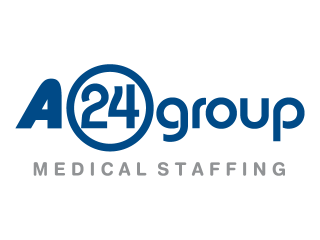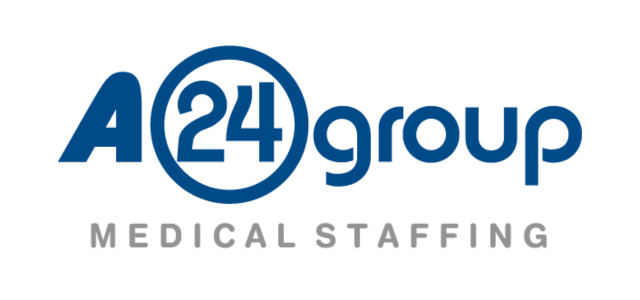Specialties in Nursing: Specific Requirements and Certifications
Are there any specific requirements or certifications needed for different specialties in agency nursing?
Agency and staff nursing in the UK offers a diverse range of specialties, each with its unique requirements and certifications. To excel in these roles, nurses need to possess specific skills and knowledge.
What essential qualifications do I need to become a nurse in the UK?
To practice nursing in the UK, you must hold either a Bachelor of Science in Nursing (BScN) or a Diploma in Nursing. These qualifications can be obtained through various universities and nursing schools.
Once qualified, you must register with the Nursing and Midwifery Council (NMC) to obtain a license to practice. From there, you can register to work with a reputable nursing agency, or become a staff nurse.
BScN vs. Diploma in Nursing: Career Paths and Pay
Both a Bachelor of Science in Nursing (BScN) and a Diploma in Nursing qualify individuals to practice nursing in the UK. However, the level of seniority and potential career paths can vary between the two.
BScN Graduates
Entry-level positions: Typically start as Band 5 staff nurses within the National Health Service (NHS) or equivalent private healthcare organisations.
Pay scale: NHS Band 5 starting salaries generally range from £27,055 to £32,389 per year.
Career progression: With experience and additional qualifications, BScN graduates can progress to Band 6 positions (senior staff nurses) and eventually Band 7 (specialist nurses).
Agency work: BScN graduates often have more opportunities for agency work, especially in higher-acuity specialties like intensive care or operating theatres.
Higher earning potential: Agency nurses with a BScN can command higher hourly rates compared to those with a Diploma in Nursing.
Diploma in Nursing Graduates
Entry-level positions: Typically start as Band 4 staff nurses within the NHS or equivalent private healthcare organisations.
Pay scale: NHS Band 4 starting salaries generally range from £22,126 to £25,977 per year.
Career progression: While it's possible to progress to higher bands with experience and additional qualifications, it may be more challenging for Diploma graduates compared to BScN graduates.
Agency work: Diploma graduates can still find agency work, but they may have fewer opportunities in some specialties or face lower hourly rates.
Key Differences Between BScN vs. Diploma in Nursing
Education level: BScN involves a longer duration of study and often includes additional academic components.
Career progression: BScN graduates may have more opportunities for advancement and specialized roles.
Pay scale: BScN graduates typically earn higher salaries, especially in agency work.
It's important to note that individual experiences may vary, and factors such as location, specialty, and experience can also influence salary and career progression.
Specific Requirements and Certifications for Nursing Specialties
While the basic qualifications and mandatory annual training are common to all nurses, some specialties may require additional certifications or experience. For example:
A&E (Accident and Emergency)
Advanced Life Support (ALS) Certification: Demonstrates proficiency in managing critical emergencies.
Trauma Care Course: Provides expertise in treating patients with traumatic injuries.
ITU (Intensive Therapy Unit)
ALS Certification: Essential for managing critically ill patients.
Advanced Ventilator Management Course: Ensures competence in operating and monitoring ventilators.
Advanced Cardiac Life Support (ACLS) Certification: Demonstrates expertise in managing cardiac emergencies.
Theatres (Operating Rooms)
Surgical Scrubbing Course: Teaches sterile techniques for preparing the operating field.
Instrument and Equipment Handling: Ensures proficiency in using surgical instruments and equipment.
Coronary Care Unit (CCU)
ACLS Certification: Crucial for managing cardiac emergencies.
Advanced Arrhythmia Interpretation Course: Enables accurate interpretation of heart rhythms.
Advanced Cardiac Monitoring Course: Ensures competence in using cardiac monitoring equipment.
Neonatal Intensive Care Unit (NICU)
Neonatal Life Support (NLS) Certification: Demonstrates proficiency in caring for critically ill newborns.
Advanced Neonatal Care Course: Provides in-depth knowledge of neonatal physiology and interventions.
Paediatrics
Paediatric Advanced Life Support (PALS) Certification: Ensures competence in managing paediatric emergencies.
Child and Adolescent Mental Health (CAMH) Training: Provides understanding of child and adolescent mental health issues.
Mental Health
Mental Health Nurse Prescribing (MHNP) Qualification: Enables prescription of certain medications.
Crisis Intervention Training: Equips nurses to manage mental health crises effectively.
Community Nursing
Community Nursing Certificate: Demonstrates specialized knowledge in community-based care.
Public Health Certificate: Provides understanding of public health principles and practices.
School Nursing
School Nursing Certificate: Equips nurses with specific skills for providing care in school settings.
Child and Adolescent Health and Development Course: Enhances knowledge of child and adolescent health and development.
Home Care Nurses
Home Care Certificate: Demonstrates specialised knowledge in providing care in home environments.
Medication Administration Training: Ensures competence in administering medications safely.
Mandatory Annual Training
In addition to these specialty-specific requirements, all nurses in the UK are required to complete mandatory annual training to maintain their registration with the Nursing and Midwifery Council (NMC). This training covers essential topics such as safeguarding adults and children, infection prevention and control, and medication management.
By obtaining the necessary certifications and completing mandatory training, agency nurses can enhance their skills and knowledge, enabling them to provide high-quality care in their chosen specialties.
Elevate your nursing career. Join the A24Group now
Register to work with us now, or contact us for permanent posts
Deciding between a BScN or a Diploma in Nursing is a personal choice that depends on your career goals and preferences. Both qualifications open doors to exciting and rewarding nursing careers.
Whether you're aspiring to become a staff nurse or an agency nurse, the A24Group offers a wide range of opportunities to kickstart or elevate your nursing career in the UK. Our expert team and advanced technology can help you find the perfect fit, whether you're seeking a permanent position or flexible part-time work.
Whatever your choice, A24Group is committed to supporting your professional development and helping you achieve your career aspirations. With our extensive network of healthcare providers and dedicated recruitment team, we'll guide you every step of the way.



